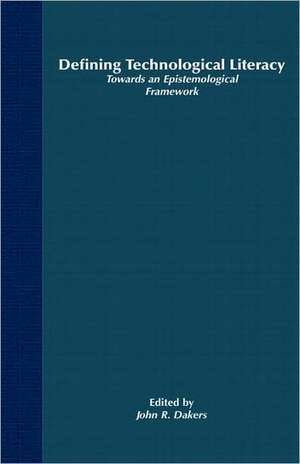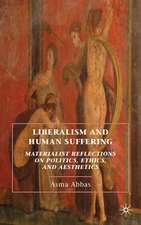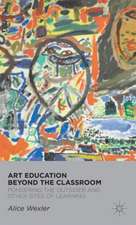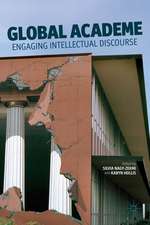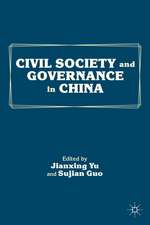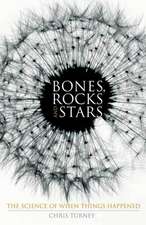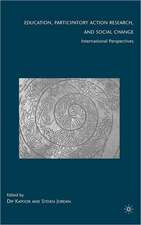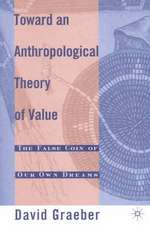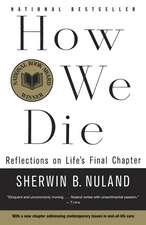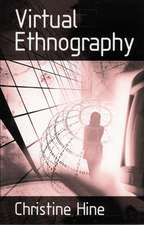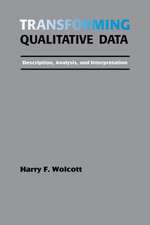Defining Technological Literacy: Towards an Epistemological Framework
Editat de J. Dakersen Limba Engleză Hardback – 19 mai 2006
| Toate formatele și edițiile | Preț | Express |
|---|---|---|
| Paperback (2) | 382.36 lei 6-8 săpt. | |
| Palgrave Macmillan US – 9 iul 2014 | 382.36 lei 6-8 săpt. | |
| Palgrave Macmillan US – 19 mai 2006 | 387.58 lei 6-8 săpt. | |
| Hardback (1) | 391.99 lei 6-8 săpt. | |
| Palgrave Macmillan US – 19 mai 2006 | 391.99 lei 6-8 săpt. |
Preț: 391.99 lei
Nou
Puncte Express: 588
Preț estimativ în valută:
75.01€ • 78.51$ • 62.43£
75.01€ • 78.51$ • 62.43£
Carte tipărită la comandă
Livrare economică 01-15 aprilie
Preluare comenzi: 021 569.72.76
Specificații
ISBN-13: 9781403970374
ISBN-10: 1403970378
Pagini: 352
Ilustrații: XIII, 223 p.
Dimensiuni: 140 x 216 x 18 mm
Greutate: 0.51 kg
Ediția:2006
Editura: Palgrave Macmillan US
Colecția Palgrave Macmillan
Locul publicării:New York, United States
ISBN-10: 1403970378
Pagini: 352
Ilustrații: XIII, 223 p.
Dimensiuni: 140 x 216 x 18 mm
Greutate: 0.51 kg
Ediția:2006
Editura: Palgrave Macmillan US
Colecția Palgrave Macmillan
Locul publicării:New York, United States
Cuprins
PART I Preface Defining Technological Literacy What Is the Philosophy of Technology? How to Understand Mundane Technology: New Ways of Thinking about Human-Technology Relations Understanding the Technological Urge: The Ambiguous Legacy of Techne Towards a Philosophy for Technology Education PART II: DESIGN IN TECHNOLOGY EDUCATION The Design of Design The Designer Fallacy and Technological Imagination PART III: THE NATURE OF TECHNOLOGICAL ACTIVITY Technology and Knowledge: Contributions from Learning Theories Technological Knowledge and Artefacts: An Analytical View Skill in Technology Creative Technological Performance PART IV: TECHNOLOGY, DESIGN AND SOCIETY: IMPLICATIONS FOR TEACHING Gender and Technology: Gender Mediation in School Knowledge Pedagogy to Promote Reflection and Understanding in School Technology Courses "Technology, Design and Society" versus "Science, Technology and Society (STS)": Learning Some Lessons Implicit Theories of Learning: Implications for Technology Education Teachers Human Beings as Technological Artefacts Technology and Ethics PART V: COMPUTERS AND THE WORLD WIDE WEB: CONSEQUENCES FOR TECHNOLOGY AND EDUCATION New Technologies/New Literacies: Redesigning Education in the Contemporary Era Globalization and the Renewal of Technological Literacy Technologizing Pedagogy: The Phenomenology of E-Learning
Recenzii
"Dakers . . . and an international slate of contributors offer this collection of 18 essays that explore humanity's responsibility for becoming more critically involved in the discussions surrounding the technologies that are so rapidly transforming the world. The book . . . engages the reader to deliberate more critically about the knowledge and processes required to develop technology and the broader implications for society if a new technological literacy framework is not developed." - CHOICE
"We all are technologists and technology users while going about our daily activities. However, most of us do not take time to reflect on the decisions we make, how technology influences what we do in our lives, where and how it should be taught in formal education systems, and the impact of technology on society. Defining Technological Literacy is a book that does the homework for us in that worldwide experts offer their knowledge for our understanding." - Dr. Kendall N. Starkweather, Executive Director/CEO, International Technology Education Association
"There have been many and anguished calls for technological literacy in the advanced industrial countries. They have mostly been in vain for two reasons. One is the lack of an incisive and circumspect conception of technology. The other is the absence of helpful theories and practices of teaching technological literacy. This books meets both of these needs. It deserves to become a landmark." - Albert Borgmann,author of Holding On to Reality (1999)
"Defining Technological Literacy provides a much broader research-based view of what technological literacy is and can be. It should be a valuable book to teacher educators, supervisors, philosophers, policymakers, and those in higher levels of education who develop educational programs for the future. While the various chapters are diverse, they all provide further enlightenment as to what technological literacy is." - William E. Dugger, Jr., Senior Fellow, International Technology Education Association
"We all are technologists and technology users while going about our daily activities. However, most of us do not take time to reflect on the decisions we make, how technology influences what we do in our lives, where and how it should be taught in formal education systems, and the impact of technology on society. Defining Technological Literacy is a book that does the homework for us in that worldwide experts offer their knowledge for our understanding." - Dr. Kendall N. Starkweather, Executive Director/CEO, International Technology Education Association
"There have been many and anguished calls for technological literacy in the advanced industrial countries. They have mostly been in vain for two reasons. One is the lack of an incisive and circumspect conception of technology. The other is the absence of helpful theories and practices of teaching technological literacy. This books meets both of these needs. It deserves to become a landmark." - Albert Borgmann,author of Holding On to Reality (1999)
"Defining Technological Literacy provides a much broader research-based view of what technological literacy is and can be. It should be a valuable book to teacher educators, supervisors, philosophers, policymakers, and those in higher levels of education who develop educational programs for the future. While the various chapters are diverse, they all provide further enlightenment as to what technological literacy is." - William E. Dugger, Jr., Senior Fellow, International Technology Education Association
Notă biografică
Wendy Dow, FranceAndrew Feenberg, Simon Fraser University, CanadaJ. Britt Holbrook, University of North Texas, USADon Ihde, Stony Brook University, USATim Ingold, University of Aberdeen, UKRichard Kahn, Antioch University, USASteve Keirl, University of London, UKDouglas Kellner, UCLA, USAMike Michael, University of Sydney, AustraliaCarl Mitcham, Colorado School of Mines, USAMichael A. Peters, University of Illinois at Urbana-Champaign, USAMarc J. de Vries, Delft University of Technology, The Netherlands
